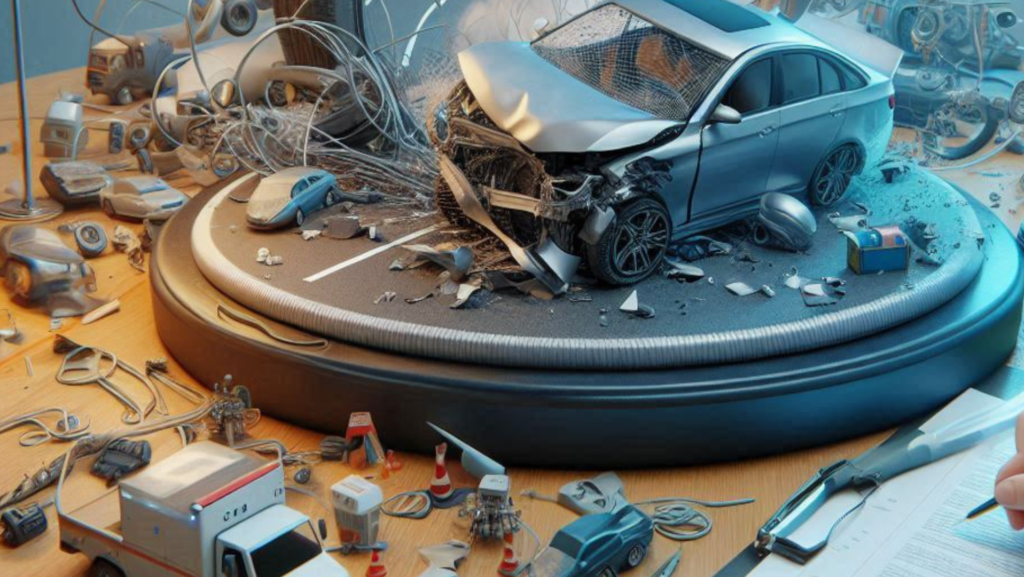Auto accidents are an unfortunate reality of modern life, often resulting in personal injuries that can significantly impact the lives of those involved. Navigating the aftermath of such accidents can be complex, particularly when dealing with legal and insurance issues. This article delves into the key legal insights surrounding auto accident personal injuries, offering a comprehensive guide for victims seeking recovery.
Understanding Auto Accident Personal Injuries
Auto accidents can cause a wide range of injuries, from minor bruises to severe, life-altering conditions. Common injuries include whiplash, broken bones, traumatic brain injuries (TBI), spinal cord injuries, internal injuries, and psychological trauma. Even if injuries seem minor at first, it is crucial to seek medical attention immediately to ensure a thorough evaluation.
In the moments following an accident, prioritizing health and safety is essential. Seeking medical attention should be the first step, followed by documenting the scene. This includes taking photographs, gathering witness information, and noting all relevant details. Filing a police report and informing your insurance company as soon as possible are also critical steps.
Legal Foundations of Auto Accident Claims
Determining fault is a critical aspect of auto accident claims. Liability can be influenced by various factors, including negligence, reckless driving, and strict liability. Negligence, the most common basis, involves a driver’s failure to exercise reasonable care, leading to an accident. Reckless driving includes behaviors such as speeding, drunk driving, and aggressive driving. In some cases, manufacturers may be held liable for accidents caused by defective vehicle parts under strict liability.
Different states adhere to various legal doctrines regarding fault. Comparative negligence allows for partial recovery based on the degree of fault attributed to each party. In contrast, contributory negligence, followed by a few states, bars victims from recovering damages if they are found to be even partially at fault.
The Role of Insurance in Recovery
Insurance plays a pivotal role in the recovery process. Key coverages include liability insurance, personal injury protection (PIP), and uninsured/underinsured motorist coverage. Liability insurance covers damages caused to others by the policyholder. PIP provides coverage for both the policyholder and passengers’ medical costs and lost income. Coverage for uninsured and underinsured drivers guards against losses brought on by drivers without enough insurance.
Filing an insurance claim involves several steps. Prompt notification to your insurer is essential. Submitting documentation, such as medical records and police reports, supports your claim. Insurers often offer settlements, and having a lawyer can ensure fair compensation through negotiation.
Legal Processes and Representation
Navigating the legal landscape can be daunting without professional help. An experienced personal injury attorney can evaluate your case, determine its strength and potential value, gather and preserve crucial evidence, and handle communications and negotiations with insurance companies. If necessary, they can also represent you in court to seek fair compensation.
Each state has specific time limits for filing personal injury lawsuits, known as the statute of limitations. Failing to file within this period can forfeit your right to pursue compensation. Awareness of these deadlines and prompt action are crucial.
Compensation and Recovery
Victims of auto accidents may be entitled to various forms of compensation, including medical expenses, lost wages, pain and suffering, and loss of consortium. Medical expenses cover current and future medical bills related to the injury. Lost wages compensate for time missed from work due to the injury. Pain and suffering encompass non-economic damages for physical pain and emotional distress. Loss of consortium addresses damages for the impact on personal relationships.
Recovering from an auto accident involves both physical and emotional healing. Legal and financial support can alleviate some of the burdens, allowing victims to focus on their recovery journey. Securing fair compensation provides the necessary resources for medical treatments, rehabilitation, and improving quality of life.
Conclusion
Auto accident personal injuries present significant challenges, but understanding the legal framework can empower victims to seek rightful compensation. By taking immediate action, understanding insurance processes, and securing competent legal representation, victims can navigate the road to recovery more effectively. While the journey may be arduous, the right legal insights can make a profound difference in achieving a fair and just outcome.


